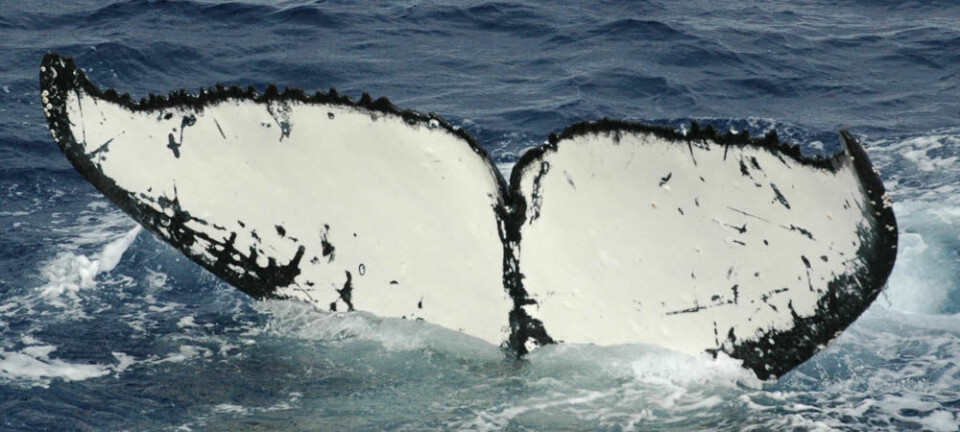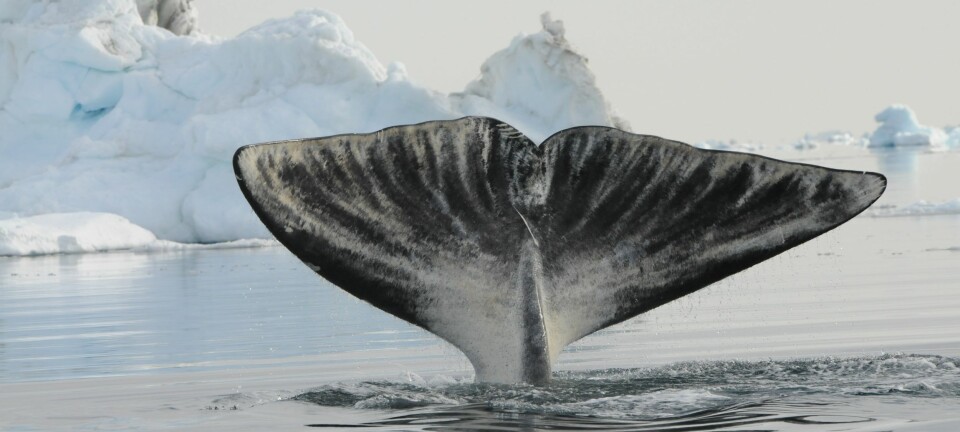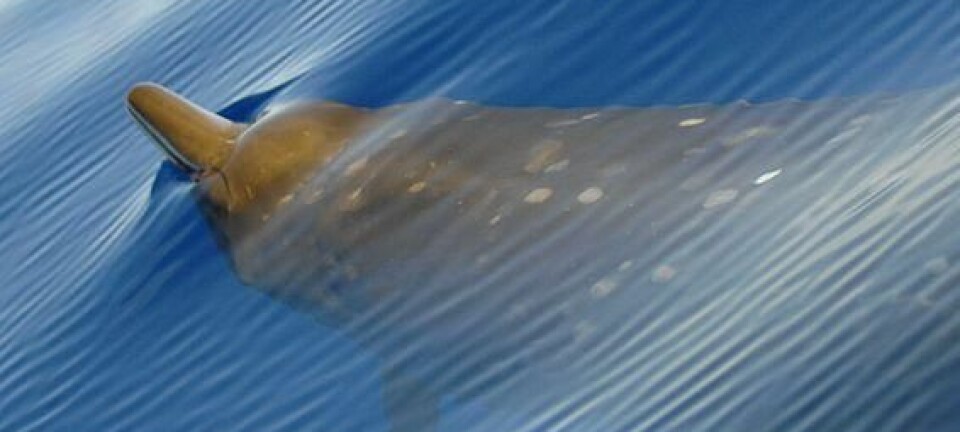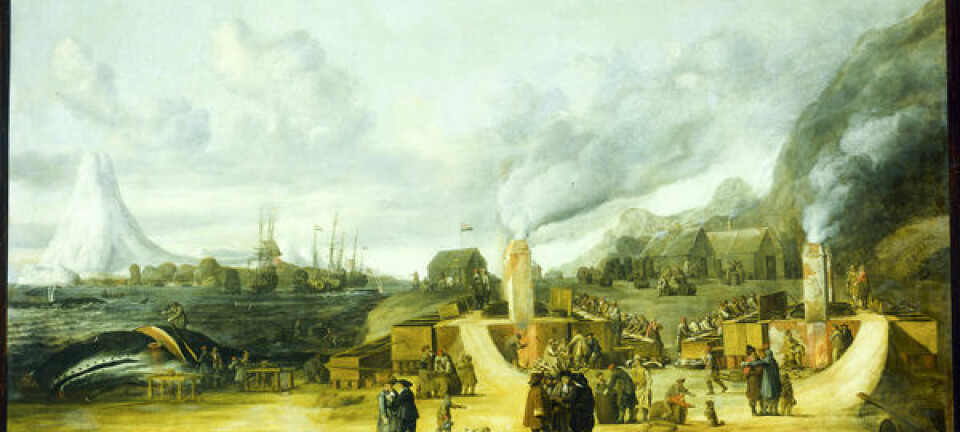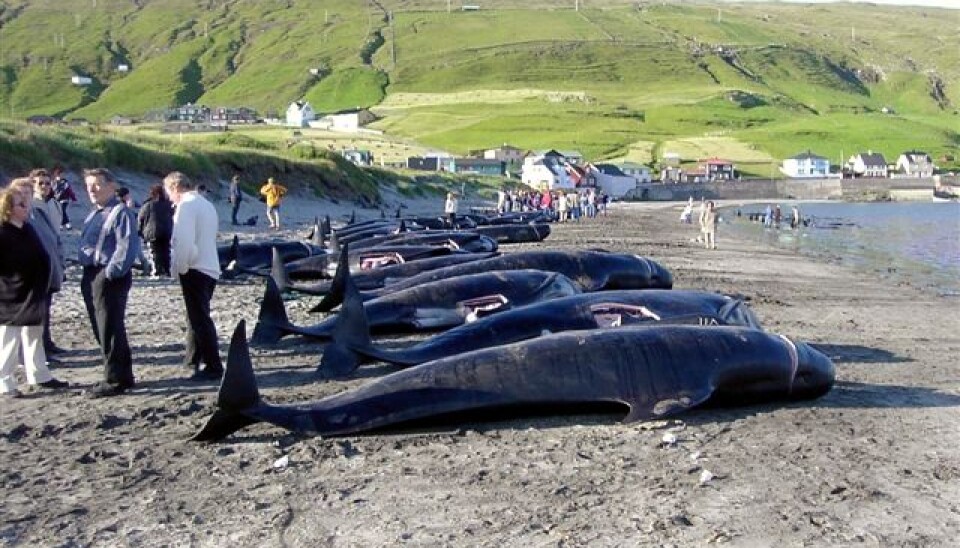
Eat whales – and perhaps get Parkinson’s
Parkinson’s disease is twice as prevalent on the Faroe Islands as in Norway. The reason might be the consumption of a particular kind of whale meat.
Denne artikkelen er over ti år gammel og kan inneholde utdatert informasjon.
Residents of the Faroe Islands who eat traditional fare are more likely to develop Parkinson’s disease. A traditional diet on the Faroes typically includes pilot whale meat.
Pilot whale meat contains large concentrations of mercury and its blubber contains polychlorinated biphenyls, better known as PCBs.
Maria Skaalum Petersen is a researcher in the Department of Occupational and Public Health in the Faroe Islands health service. One of her projects has included a comparison of the prevalence of Parkinson’s disease in the Nordic countries.
Twice as much as in Norway
Figures from Norway, Denmark, Finland and Greenland at different times in the past 25 years have shown from 81 to 115 cases of Parkinson’s per 100,000 inhabitants.
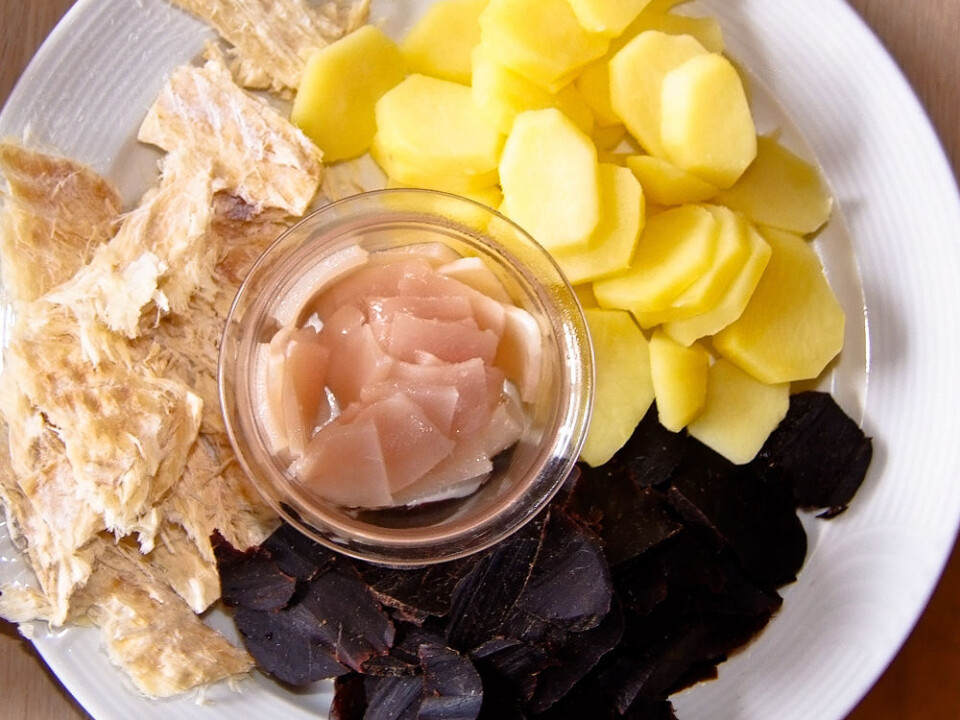
Roughly 50,000 people live on the Faroes, but twice as many are diagnosed with the disease as in the other Nordic countries. The age-adjusted prevalence is equal to 183 per 100,000 inhabitants. Iceland also has a higher prevalence than the mainland Nordic countries, with 162 Parkinson’s cases per 100,000.
A relevant fact, however, is that the Faroe Islands Parkinson’s patients have eaten about six times more whale meat and blubber as adults on average than their compatriots.
Vulnerable to the disease?
Because the Faroe Islands are home to so few, Petersen’s study is comprised of just a small number of people. This widens the margin of error considerably. But Petersen has little doubt that adults who feast on whale meat and blubber are more likely to contract Parkinson’s.
“I don’t think the patients get Parkinson’s disease directly from eating pilot whales,” Petersen says, however.

“But it could be that the high exposure, along with a genetic disposition, make some people more vulnerable to developing the disease than others,” she says.
She has also studied Parkinson’s in relation to genetic mutations that are more common on the Faroe Islands than elsewhere in the world. But her results from this analysis did not indicate any link.
Not like Norwegian whale meat
Norwegians and other individuals who sometimes have whale on their plates do not run the same risk of developing Parkinson’s disease. The whale meat sold in Norway is from minke whales, a species that has a diet much lower in the food chain. This means they do not accumulate as many contaminants.
“The Faroe Islanders eat pilot whales, which are toothed whales, while Norwegians eat baleen whales. Pilot whales primarily eat fish and squid, which put them higher up on a food chain. That contaminates them with mercury and persistent compounds – PCBs and the like,” Petersen says.
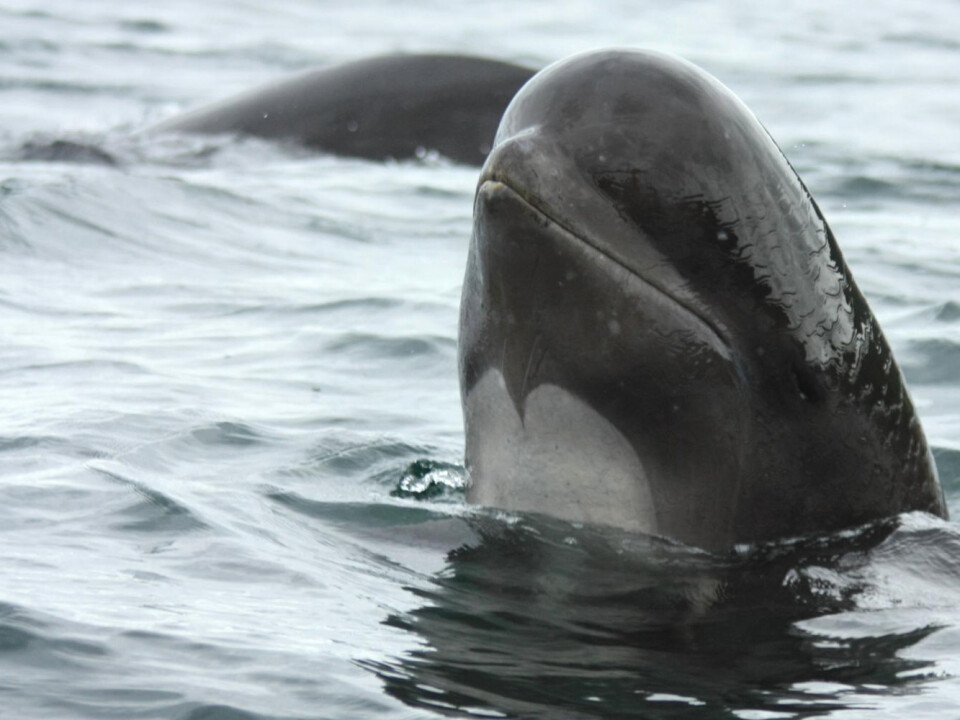
Baleen whales are toothless and feed by filtering zooplankton and krill. They are high on a much shorter food chain, making them less prone to accumulating contaminants. So Norwegians who eat whale meat are not considered to be at greater risk of Parkinson’s.
PCB and mercury in the blood
“The consumption of whale meat and blubber was particularly high in the Faroes in the old days,” explains the researcher.
Petersen says that because this whale meat is so contaminated, Faroe Islanders have had high concentrations of PCBs and mercury in their blood. The situation is a little different today, but inhabitants still have high levels of these contaminants compared to people in other countries.
Petersen presented her findings at the recent Arctic Frontiers Conference in Tromsø, Norway. She is now involved in further research with Parkinson’s patients to try and find out what effect genetics has on the risks of developing the disease.
--------------------------------
Read the Norwegian version of this article at forskning.no
Translated by: Glenn Ostling







